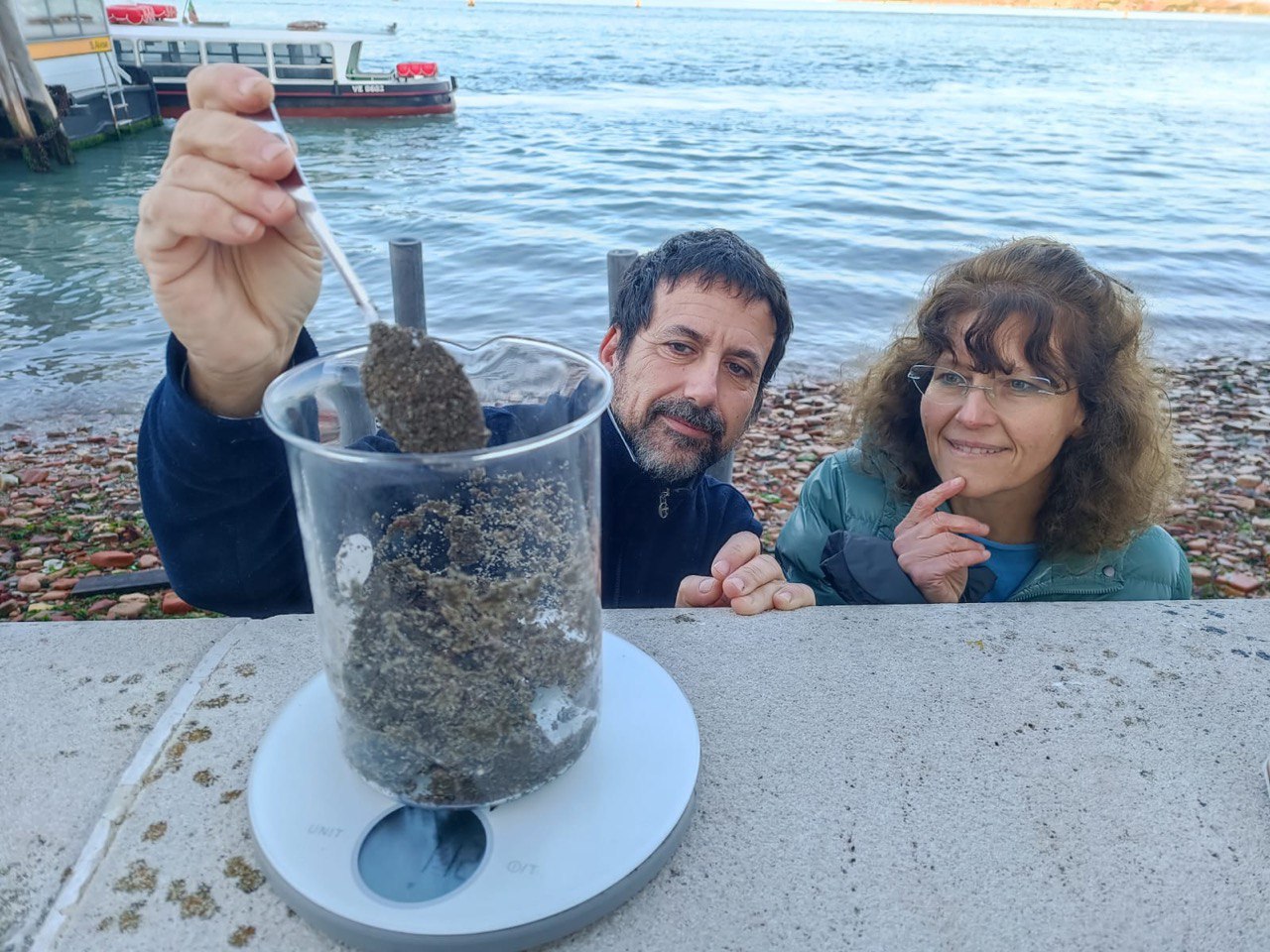On November 14 and 15, the MICRO monitoring campaign (Microplastics Investigation for Comprehensive Research and Observation) took place at the Sant’Alvise shoal in Venice’s historic center and the WWF Oasis of Alberoni on the Lido of Venice.
MICRO is coordinated by Venice Lagoon Plastic Free with support from IMG Group, a prominent Portuguese industrial group in the polymer sector, and the participation of teachers and students from the Chemistry Department of the “G. e M. Montani” Technical Technological Institute city of Fermo.
The initiative addresses the growing problem of microplastic pollution, a highly concerning issue with significant environmental and human health impacts.
Microplastics are ubiquitous, widely detected in natural ecosystems—especially marine ones—as well as in animal and plant organisms and even the human body. Despite the urgency of the issue, medical and scientific research on the impact of microplastics on human health is still rapidly evolving. Current regulatory frameworks and environmental policies are not yet adequately equipped to systematically address the issue. Furthermore, pre-analytical sampling methods and analytical procedures are not standardized, often leading to unreliable or incomparable results.
Venice Lagoon Plastic Free aims to bridge this gap, in part through citizen science initiatives like the MICRO project, which seeks to make sample collection strategies statistically significant and improve analytical processes.
MICRO monitors both the quantity and chemical characterization of microplastics present in the lagoon area adjacent to Venice’s historic center and along the Venetian coastline facing the northern Adriatic, one of the most polluted regions of the Mediterranean Sea.
The project comprises three phases:
- Preparatory activities,
- Sampling campaign, and
- Laboratory analysis.
Eleven students from the “G. e M. Montani” Technical Technological Institute in Fermo, guided by their professors Teresa Cecchi and Roberto Barbieri, actively participated in the two days of fieldwork.
The students collected microplastics from sands along transects perpendicular to the Venetian coast. These activities were carefully designed during the first curricular course on Green Chemistry and Outreach in Italy to ensure that microplastic analysis has minimal environmental impact. In scientific literature, microplastics are typically separated from sand using zinc chloride solutions, which must then be treated as hazardous waste. In accordance with the 10 principles of Green Analytical Chemistry, the team employed an alternative flotation technique using a high-density, biodegradable solution. A cascading filtration process was then used to avoid errors from manual classification of the floated microplastics.
In the laboratory, students will perform an in-depth analysis of the collected samples, removing biotic contaminants to prevent interference and conducting additional filtrations. The microplastics will be observed for morphological classification (size, color, shape) and identified by polymer type using FTIR and micro-FTIR spectroscopy.
The collaboration between Venice Lagoon Plastic Free and the “G. e M. Montani” Technical Technological Institute dates back to 2019.
Founded in 1854, Montani is Italy’s oldest technical school and a center of excellence. Its Chemistry Department is committed to Green Chemistry principles in various fields, including molecular-level research on microplastic pollution. In this initiative, Montani contributed its technical expertise and instrumental resources to innovatively “green” microplastic contamination monitoring. The institute’s new gas chromatography-mass spectrometry (GC-MS) system will study the molecular fingerprint of volatile organic compounds released by microplastics, building on earlier research by Teresa Cecchi conducted in 2020.
IMG Group’s Role : IMG Group, active in the polymer industry since 1959 and a pioneer in PET film extrusion, is committed to supporting projects aligned with strategic sustainability goals, including environmental education and recycling, regenerative training, ecosystem regeneration, and social justice.
Through this initiative, Venice Lagoon Plastic Free aims to achieve a scientifically robust understanding of microplastic contamination and the most common polymers dispersed in nature. The project seeks to provide objective tools for awareness campaigns and support efforts to reduce the use of single-use plastics.
The results could also contribute to discussions on developing eco-friendly products and reducing microplastic pollution in the environment. The data collected through MICRO will continue to be used for scientific, educational, and public policy purposes, with the goal of expanding the initiative and its methodologies to additional sites.
